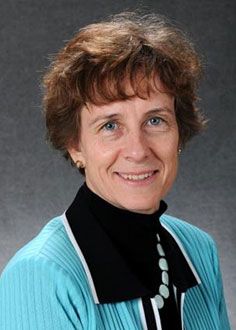
Washington (Feb. 11, 2013) - International leaders from a variety of disciplines, faiths, and cultures held a landmark gathering in Geneva to develop recommendations on integrating spirituality into health care systems worldwide. Convened by the George Washington University Institute of Spirituality and Health (GWISH) and Caritas Internationalis in January, the conference challenged this diverse group of researchers, educators, and policymakers, physicians and nurses, and chaplains and clergy from more than 20 countries to look critically at the current state of health care and creatively assess how to better serve patients by integrating spirituality into compassionate and person-centered health care.
For centuries, medicine and spirituality worked hand-in-hand to address suffering and healing. However, early in the 20th century, technological advances in diagnosis and treatment—though dramatic and resulting in the saving of countless lives—shifted the culture of medicine away from a holistic, service-oriented model. However, over the last 25 years, visionaries such as Christina Puchalski, M.D. '94, RESD '97, founder and director of GWISH, have led a groundbreaking effort to look at the role spirituality—defined broadly as the very essence of compassionate care—plays in health care. The 2013 conference was a follow up to a 2009 consensus meeting in the U.S. at which the process of developing guidelines for integrating spirituality into health care began to take shape. This earlier event catalyzed significant interest in the topic—now considered a major field in health care—and sparked discussion of creating global guidelines.
“Reasons for the distress that a patient experiences is complex and far beyond the physical symptoms, size of a tumor or biochemical abnormalities that the present day healthcare care system tries to address,” said Suresh Kumar, M.D., director of the Institute of Palliative Medicine, Calicut, Kerala, India, and conference attendee. “Spiritual care as part of whole person care is particularly important today.”
In Geneva, the group achieved a consensus on an appropriate multi-cultural definition of spirituality as related to health; proposing consensus-driven standards of care that focus on the whole person; developing a broad framework for a proposed global strategic plan to improve the quality of spiritual care in health; and building a coalition for evaluating spirituality as a vital sign. Complete findings will be published in an academic journal.
”The fact that we achieved consensus on the full integration of spirituality into mainstream healthcare, with so many different cultures and countries represented in the room is inspirational” said Puchalski. “There is recognition globally of the importance of honoring the dignity of each human being, responding to all patients’ suffering with compassion as a fundamental professional obligation and recognizing that health is more than merely the absence of disease”.
“Caritas Internationalis believes strongly in the dignity of each and every person. We believe that all health care and human development must be holistic and encompass the entire person – body, mind, and spirit,” said Msgr. Robert Vitillo, M.S.W., head of the Caritas delegation to the United Nations in Geneva. “We saw many of our own values reflected in the work of GWISH and were pleased that this consensus conference is inspiring action and initiatives to elevate the quality of health care to benefit all patients, regardless of their faiths, values, cultures, and beliefs.”
Buoyed by the energy that was generated, conference participants are returning home with ideas that were developed in consensus to create demonstration projects all over the world, such as education programs and training centers for health care providers. They have committed to work together as a coalition for change, advancing their vision of a world in which every patient is treated with dignity and respect, whose values are respected and integrated into care, and who can lead meaningful and authentic lives, even in the midst of suffering and illness.
“Beyond the definitions and standards of spiritual care which the conference produced, it brought together people who practice, teach, research and promote spirituality in health care,” said Manuel Dayrit, M.D., Former Secretary of Health in the Philippines, who attended the conference. “These are the kind of people who will fervently support the global momentum towards enkindling the spiritual dimension in health care worldwide, a momentum which has already begun in many countries.”
Shane Sinclair, Ph.D., spiritual care coordinator, Tom Baker Cancer Centre, Calgary Alberta Canada and adjunct assistant professor, faculty of medicine, University of Calgary, has three new research projects he is working on as a result of the conference.
“This is the first conference that I am aware of, where international experts met for the sole purpose of enhancing the spiritual aspect of health. The conference represented an important first-step in meeting this goal but it was clearly that—a first step,” said Sinclair. “The recommendations that came out of these meetings are not going to be buried in a 12-point font of a health care journal; the recommendations are part of a living document that will be put forward within healthcare settings globally.”
The Fetzer Institute supported the conference to help move the needle forward in this burgeoning field.
“Fetzer has long been interested in how intangible aspects of everyday life—like stress, social support, and one’s spirituality—affect our overall wellbeing. Having leaders of this caliber gather on this topic promises to add to our understanding of the many markers that define our health and—for Fetzer—where and how compassion, love and forgiveness appropriately exist in the course of care. We are proud to have been a part of this event,” said Angela Graham, program officer at the Fetzer Institute, a partner in the conference.
GWISH and Caritas are committed to further advance advance the framework developed by this consensus conference and to foster a movement that includes spirituality as an essential component of person-centered health.


